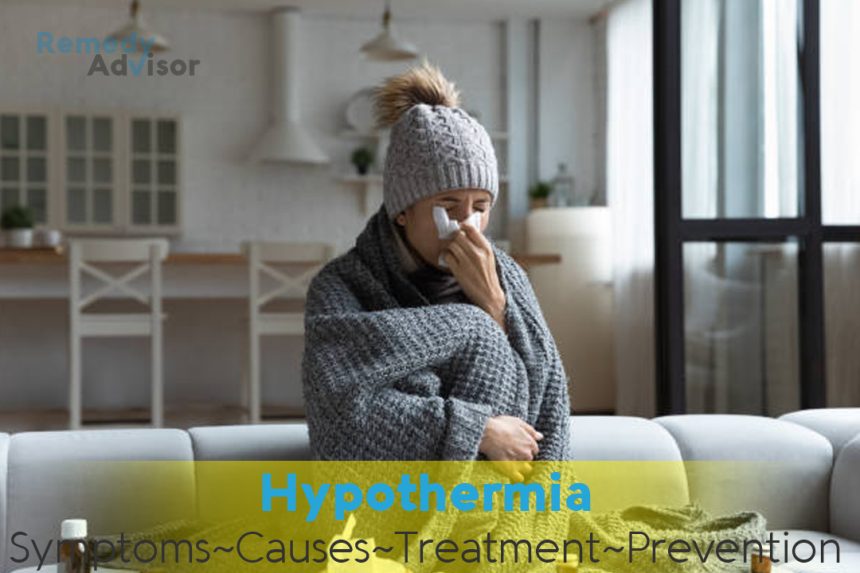What is it
Hypothermia occurs when your body loses heat rapidly, to the point where there is a drop in core body temperature below 95°F three to four degrees below what is normal in most people. This generally happens whenever your body is exposed to cold temperatures for an extended period from several hours to several days or when your skin becomes both chilled and damp. (You can develop hypothermia even at temperatures of 50°F if the weather is especially windy or wet.) Often a person who slips into hypothermia is overwhelmed by drowsiness and may be unaware that anything is wrong even as symptoms grow progressively more severe.
Although it is mostly associated with cold out- door winter weather, hypothermia can also occur indoors during the winter months. Elderly adults may be especially susceptible, particularly if they keep their thermostats set low to save on heating costs. Older people are often less able to shiver effectively, which is one of the ways your body increases heat production to stay warm. Oftentimes, various medications they take can also contribute to the onset of hypothermia by interfering with the body’s natural heat-regulating mechanism in the brain. The more common drugs that can have this effect include barbiturates, tricyclic antidepressants, and benzodiazepines.
Symptoms
- Numbness.
- Excessive shivering, or no shivering.
- Cold skin.
- Fatigue, sleepiness.
- Faint or slow pulse.
- Loss of coordination.
- Slurred speech.
What causes it
Hypothermia is generally caused by a combination of inadequate clothing protection and exposure to cool or cold outdoor temperatures, especially when combined with wind and/or rain. Hypothermia can also occur when a person stays in cold water for too long.
Being slender can make a person more prone to hypothermia. A slender person usually has a comparatively low level of body fat and therefore less natural insulation from the cold, so body heat is lost more rapidly.
What if you do nothing
Hypothermia can quickly become a medical emergency if not dealt with promptly. A hypothermic person is at risk of developing frostbite, and, more seriously, can slip into a coma if body temperature is not restored to normal.
Emergency treatment
A person with hypothermia needs emergency assistance from the nearest doctor or medical facility. If you suspect that someone has hypothermia, take the following steps until professional help is available.
Warm up
Get the person out of the cold and into a warm room. Remove all wet clothing. If possible, get the person into warm, dry clothing and wrap him or her in blankets to prevent further loss of body heat. (Be sure to wrap the head and neck.)
Supply warm fluids
Have the person drink warm fluids like soup, coffee, or tea. Absolutely avoid alcoholic beverages: they will dilate blood vessels under the skin and accelerate the loss of body temperature.
Preserve wakefulness
If a hypothermic per- son is losing consciousness, do whatever you can to keep the person awake, including talking, jostling, playing music, or using some other noise.
Prevention
Dress properly
Dress in protective water-and windproof outer garments when going outside in cold and wet weather.
Eat
Be sure to eat and drink before heading outside in frigid, cold, damp, and windy weather. This ensures your body will have the necessary fuel it needs to keep going and stay warm. Keep nibbling on high-energy snacks during extended outdoor stays to help maintain body heat.
Avoid alcohol
Alcoholic beverages interfere with the body’s ability to regulate temperature.
Keep warm
Make sure your indoor home temperature is in the 70°F range and that you wear adequate clothing at all times.
Stay inside during severe winter storms
Don’t put yourself at risk in extremes of temperature, no matter how well you’re dressed.
Get out of wet clothing immediately
Water speeds the loss of body heat and is a major contributor to hypothermia.
Be prepared
Make sure you have emergency provisions in your car during winter weather. Also, take along emergency equipment whenever hiking or camping in cold, damp weather.
Check on those at risk
Drop by or telephone elderly relatives and friends regularly during the cold winter months to see how they are doing.







